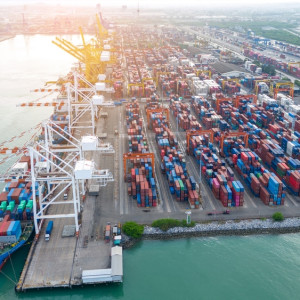UK’s £170B Logistics Sector is Unsung Hero of Economy


The UK logistics sector generates ?170 billion for the UK economy, employs over 8% of the nation's workforce and is a key enabler in the government achieving its growth agenda, according to The Logistics Report 2025, Logistics UK's annual review of the sector. The business group launched the report during its inaugural annual conference, at the QEII Conference Centre in London today (4 June) and also called for recognition from the government of the strategic role the sector plays in the wealth of the nation. Speaking at the launch of The Logistics Report 2025, Logistics UK President Phil Roe said, "Logistics is not a background operation - it is a driver of growth and a barometer of economic efficiency.
When logistics thrives, the economy thrives. The Logistics Report shows how much the sector contributes and there needs to be a step change in how logistics is understood, supported and prioritised in national policy making. Key to this is recognition of logistics as a foundational sector in the Industrial Strategy, underpinning, as it does, all industry."
The Logistics Report 2025 provides a comprehensive benchmark for the industry, reflecting on the past year and identifying future trends and sentiment within the sector. It combines the latest official statistics, insight from industry experts and the findings of Logistics UK's Industry Survey which canvassed over 500 of its members to gauge industry sentiment - a summary and details of how to obtain the full report can be found here: www.logistics.org.uk/research-hub/reports/logistics-report. The report shows a mixed picture with overall business confidence declining compared to previous years, likely due to economic uncertainty and heightened market volatility.
Despite this and cost pressures in the sector, there has been cautious business expansion and investment, particularly in vehicle technologies and fleet management, which according to Logistics UK highlights the sector's ongoing commitment to decarbonisation. Mr Roe outlines how the report reveals recruitment is still a challenge for the sector, "Logistics businesses continue to face difficulties recruiting people with the right skills to fill key roles. Larger companies are looking at AI to manage skills gaps but this is not a sustainable solution and we need a continuous training pipeline to ensure we have an appropriately trained workforce."
In 2024, the UK's international trade experienced mixed results, according to The Logistics Report: exports declined slightly to ?798.6 billion and imports increasing modestly to ?858.2 billion. Mr Roe continued, "We are operating in sluggish times - growth is now predicted to be 1.2% during 20251 - and as this year's Logistics Report shows, the value of international trade was essentially the same in 2024 as it was during the previous year. This government is rightly focused on growth and the recent announced trading deals with the US, India and the EU have the potential to boost trade.
However, the maximum benefits from these agreements will only be realised if the country has a buoyant logistics industry to support the nation's trading relationships. It is logistics companies that will ultimately be moving goods to and from our trading partners and an efficient logistics network means faster delivery, lower costs, and increased competitiveness for businesses across every sector." Logistics UK is one of the UK's biggest business groups, representing logistics businesses which are vital to keeping the UK trading, and more than seven million people directly employed in the making, selling and moving of goods.
With decarbonisation, Brexit, new technology and other disruptive forces driving change in the way goods move across borders and through the supply chain, logistics has never been more important to UK plc.
Logistics UK supports, shapes and stands up for safe and efficient logistics, and is the only business group which represents the whole industry, with members from the road, rail, water and air industries, as well as the buyers of freight services such as retailers and manufacturers whose businesses depend on the efficient movement of goods.
For more information about the organisation and its work, please visit logistics.org.uk
Transport & Logistics - Driving The Industry Forward